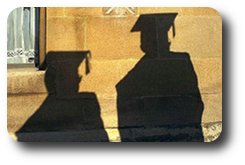Saturday 31 October, 10.30am until 12.00pm, Upper Gulbenkian Gallery Keynote Controversies
 Endless disputes about everything from the role of assessments, exams and inspections to the content of the curriculum seem to add up to a crisis in schooling. In his new book, Wasted – Why education isn’t educating, Professor Frank Furedi argues these controversies are symptoms of a more fundamental problem: confusion about adult authority. Since education requires the conscious and regular imposition of that authority, it is here that the crisis is most pronounced. The insecurity experienced by a significant section of the teaching profession in dealing with pupils’ misbehaviour suggests they often feel powerless, but apprehensions about discipline are only the starkest expression of unease about adult authority. Teaching inevitably involves an unequal relationship between adults and children. It presupposes that the older generation has something important to impart. And in order to learn, children have to accept of the authority of the teacher who embodies knowledge of a subject. But today, teachers and parents alike often try to avoid acting authoritatively because they feel uncomfortable with this hierarchical role. We’re all familiar with how many teachers and parents affect the role of a ‘mate’ in their dealings with children. It is even common for teachers to call themselves ‘learners’, and listening to the ‘pupil voice’ is a mandatory requirement of school life.
Endless disputes about everything from the role of assessments, exams and inspections to the content of the curriculum seem to add up to a crisis in schooling. In his new book, Wasted – Why education isn’t educating, Professor Frank Furedi argues these controversies are symptoms of a more fundamental problem: confusion about adult authority. Since education requires the conscious and regular imposition of that authority, it is here that the crisis is most pronounced. The insecurity experienced by a significant section of the teaching profession in dealing with pupils’ misbehaviour suggests they often feel powerless, but apprehensions about discipline are only the starkest expression of unease about adult authority. Teaching inevitably involves an unequal relationship between adults and children. It presupposes that the older generation has something important to impart. And in order to learn, children have to accept of the authority of the teacher who embodies knowledge of a subject. But today, teachers and parents alike often try to avoid acting authoritatively because they feel uncomfortable with this hierarchical role. We’re all familiar with how many teachers and parents affect the role of a ‘mate’ in their dealings with children. It is even common for teachers to call themselves ‘learners’, and listening to the ‘pupil voice’ is a mandatory requirement of school life.
While this trend is presented as progressive and enlightened, critics like Furedi argue it represents an evasion of the responsibility that grown-ups have towards the younger generation. Teachers need to assume pedagogic authority in order to initiate, direct and set the terms of their relationship with children, often imposing demands on youngsters that go against the child’s inclination, such as insisting that children study a topic in which they have no interest, but which is nevertheless fundamentally important for their development. Similarly, teachers need to set boundaries to help children acquire the habit of self-discipline and concentration, and curb their tendency to get distracted. What are the consequences when teachers flounder and accommodate to the inclinations and feelings of children? Without conscious adult guidance, how can education be anything other than an arbitrary and confusing experience?
Listen to the session audio…
Other formats are available here
 | Professor Frank Furedi sociologist and social commentator; author, What's Happened to the University?, Power of Reading: from Socrates to Twitter, On Tolerance and Authority: a sociological history |
| Chair: | |

|
Claire Fox
director, Academy of Ideas; panellist, BBC Radio 4's Moral Maze; author, I Find That Offensive |
I was talking to a group of 12-year-olds about their life at school. One of them gazed at me with a puzzled demeanour and asked:
Frank Furedi, London Evening Standard, 29 October 2009A report claims that a third of teachers have been falsely accused of wrongdoing. Frank Furedi argues that it's time parents recognised their responsibilities.
Frank Furedi, The Times, 27 October 2009Schools now expel pupils as young as three. Are children so bad? No – it’s adults’ fault.
Frank Furedi, Sunday Times, 25 October 2009
 Education is praised for its potential contribution to economic development, as a central instrument for encouraging social inclusion and mobility. Increasingly, the promotion of education has little to do with learning as such.
Education is praised for its potential contribution to economic development, as a central instrument for encouraging social inclusion and mobility. Increasingly, the promotion of education has little to do with learning as such.
Frank Furedi, Continuum, 30 September 2009
One of the most influential contemporary cultural myths is that our era is characterised by the end of deference.
Frank Furedi, The Australian, 2 September 2009 Hijacking education
Hijacking education
From global warming alarmism dressed up as Geography to 'happiness teaching' through yoga: the classroom has been hijacked by zealous campaigners who care little for pedagogy.
Frank Furedi, spiked, 11 June 2007